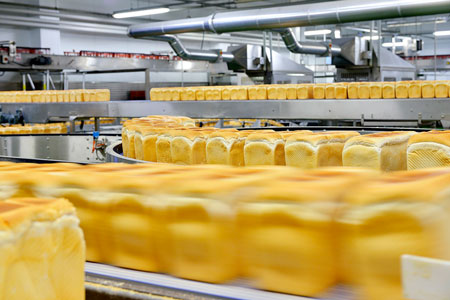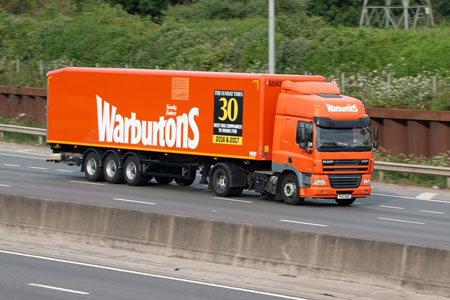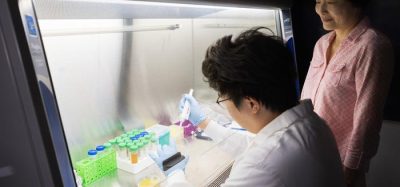Using its loaf to raise efficiencies
- Like
- Digg
- Del
- Tumblr
- VKontakte
- Buffer
- Love This
- Odnoklassniki
- Meneame
- Blogger
- Amazon
- Yahoo Mail
- Gmail
- AOL
- Newsvine
- HackerNews
- Evernote
- MySpace
- Mail.ru
- Viadeo
- Line
- Comments
- Yummly
- SMS
- Viber
- Telegram
- Subscribe
- Skype
- Facebook Messenger
- Kakao
- LiveJournal
- Yammer
- Edgar
- Fintel
- Mix
- Instapaper
- Copy Link
Posted: 11 September 2018 | Stephanie Duvault-Alexandre | No comments yet
Stephanie Duvault-Alexandre explains how her company’s partnership with leading UK bakery Warburtons has meant mutual benefits.


Warburtons, the largest bakery brand in the UK with sales of £551 million last year, prides itself on the freshness of its bread, which is manufactured and delivered daily to over 18,500 retailers. To achieve this, the company – which has doubled in size over the last decade to become the second biggest selling grocery brand in the UK after Coca Cola – has had to focus on its supply chain and introduce new technology. In so doing, the company has succeeded in getting its products off the shelves more quickly and streamlining deliveries.
After replacing its ageing IT systems with demand and promotional planning software, Warburtons has been able to increase the accuracy of its forecasts from 79 to 86 percent.
“Given that we produce over two million wax-wrapped loaves, wraps, crumpets, pancakes and bread rolls every day, a six per cent increase in forecast accuracy is a massive achievement,” says Iain Bishop, senior commercial forecast manager at Warburtons. “We can see exactly how many loaves will be required by every retailer for the next day, week or month.”
Warburtons has its own fleet of 900 vans and trucks, which deliver daily throughout the UK. This, it says, allows the company to control its products and quality right until the point they appear on the shelf the next day, freshly baked for customers.
“What’s baked today is shipped the same night and delivered ready for the supermarket shelves tomorrow,” adds Bishop.
Warburtons relies on bread for 70 percent of sales, with just over a quarter of the total volume share of the £2.8 billion wrapped bakery market. It offers a wide choice of products that cater for different diets and healthy, balanced lifestyles, including gluten-free and protein ranges.


Warburtons produces over two million baked items per day.
Sales of other products introduced in the past few years are growing at 30 percent a year, including pancakes, wraps and potato cakes. Its low-calorie sandwich alternative, called Thins, now accounts for four per cent of sales. They are baked for just 90 seconds and can be cooled in a freezer in under a minute to accelerate the production process. Its £20 million bakery site in Burnley can produce 34,000 individual items per hour.
New software brings fresh forecasts
Bishop explains that what is expected to sell over a fixed time-period is now all driven by Warburtons – something that sets it apart from most competitors. The new software, from Birmingham-based company FuturMaster, determines what every retailer will typically be ordering in two days’ time, usually over a two-year horizon. It then breaks down the total volumes for different products or regional locations so that operations are more efficiently managed for just-in-time deliveries. Each driver will deliver to 25 stores daily, making a total of around 17,000 deliveries a day.
“This is much better for everyone, as we don’t carry finished goods.”
The company, which employs over 4,500 people, has a team of three planners who manage up to 2,500 forecasts every day. They report on business volume performance and Key Performance Indicators (KPIs) to enable more effective business planning. The team are also responsible for managing promotional volumes and measuring the impact of other external factors such as advertising activity, or even the weather. However, they don’t just look at the short-term and daily retailer requirements, says Bishop. The introduction of the software’s ‘portfolio forecasting’ tool (during a second phase of the project, which went live in 2016), means Warburtons can now project up to five years ahead and see what improvements can be made, and what cash benefits they will drive.


Warburtons has its own fleet of over 900 delivery vans and trucks.
For instance, based on the anticipated heightened sales of its Sandwich Alternative Range over the next few years, the software can predict capital expenditure needs that might require additional kit for producing higher volumes in future.
Warburtons currently operates 12 bakeries and 14 depots across the UK. The family business, which was founded by Thomas and Ellen Warburton in 1876, has invested more than £400 million over the past decade, building new bakeries, refurbishing others and upgrading distribution networks to ensure its products are as fresh as possible when they arrive at the point of sale.
Bakery big data
“The IT systems previously in place were proving too cumbersome for our fast-growing business,” says Bishop. “So forecast accuracy wasn’t great and we were spending far too much time on pointless administrative tasks rather than making strategic decisions.”
He adds that the need to manage growing volumes and continually improve on its systems and processes also forced them to look more closely at harnessing supply chain efficiencies.
Planning promotions with retailers – often up to a year ahead – is another benefit derived from using the new software. Furthermore, as the company works ever more closely with increasing numbers of retailers focusing on their sales, waste, availability and forecasting data, further improvements are expected.
“The software allows us to analyse very quickly whether a particular promotion is realistic or not and see any resulting sales uplift,” says Bishop.
This has sped up the process for national account managers working across the country of planning promotions with various customers. Prior to this, such a task would take almost a day every month and would require trawling through multiple spreadsheets for each customer. Now it takes thirty minutes. This means that for servicing a total of ten to fifteen customers, account managers need only spend two to three hours on administrative tasks, leaving more time for selling and other important tasks.
Overall, Bishop says that Warburtons has been able to benefit from significant time savings – not only across its operations and production processes, but for customers, too – after implementing our software. What would previously have been a 65 percent to 35 percent split on administrative versus added-value tasks, he now estimates to be just ten percent of time being spent on admin, thereby freeing up 90 percent of time for strategic decision-making.
The project estimated savings of £430 thousand over two years – and for a product like bread, freshness is paramount to success. The improvements the company has made in ensuring its supply chain operates at the top of its game mean it’s sure to earn its daily crust.
About the author
Stephanie Duvault Alexandre is an AI expert at software provider FuturMaster.









